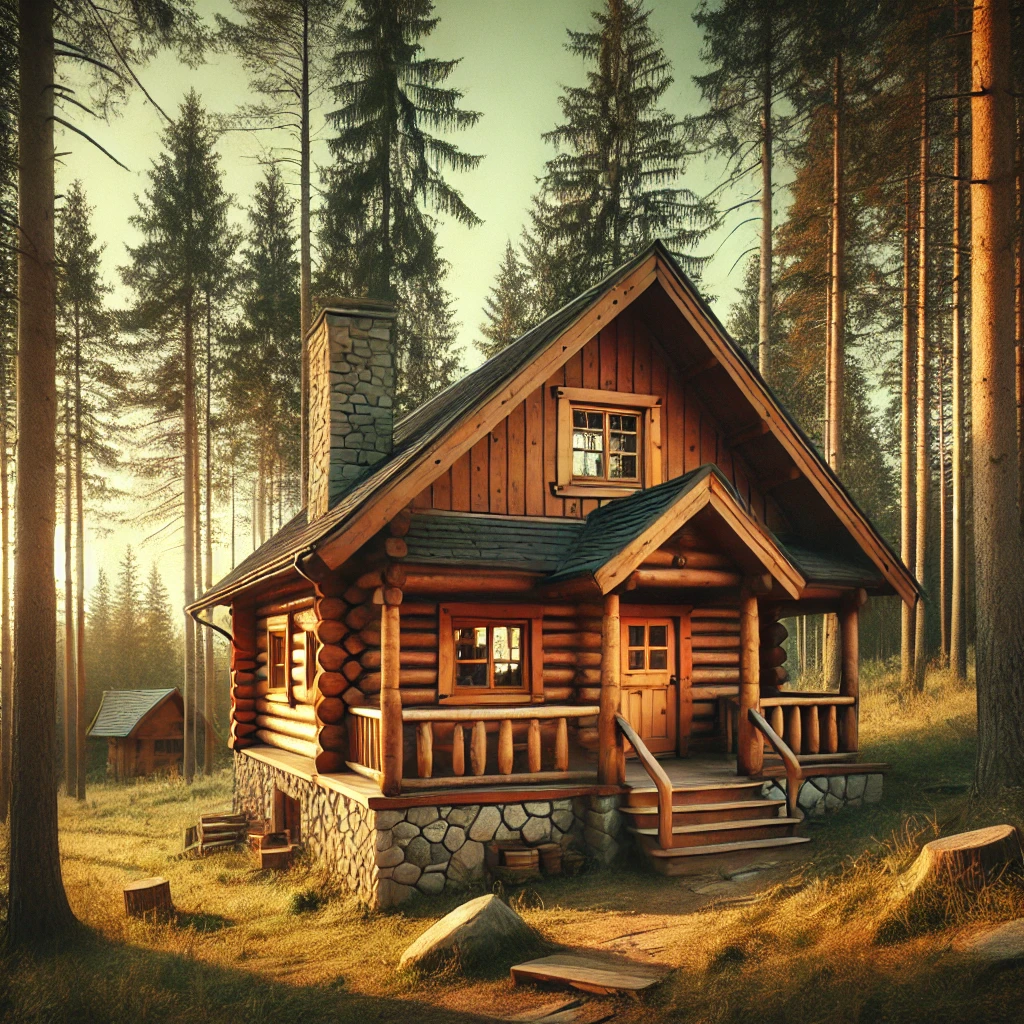
The Benefits of Cabin Homes A Retreat from the Modern Hustle
The Benefits of Cabin Homes: A Retreat from the Modern Hustle
Cabin homes have long held a timeless appeal. Whether nestled deep in the woods, perched on a mountainside, or situated by a serene lake, these homes offer a unique lifestyle that blends simplicity, comfort, and connection to nature. In today’s fast-paced world, the allure of cabin living has only grown stronger, offering countless benefits that go beyond their rustic charm. From mental well-being and financial advantages to environmental sustainability and design flexibility, cabin homes provide a compelling alternative to traditional housing.
1. A Tranquil Escape from Urban Life
One of the most immediate benefits of a cabin home is its ability to serve as a tranquil retreat. Away from the noise, traffic, and constant stimulation of urban environments, cabins offer a sense of peace that is hard to replicate elsewhere. Surrounded by nature, residents can enjoy the soothing sounds of birdsong, rustling leaves, and flowing water, all of which contribute to reducing stress and promoting relaxation.
Studies have shown that spending time in natural settings can lower cortisol levels, improve mood, and enhance overall mental health. Living in a cabin or even visiting one regularly can help individuals disconnect from the chaos of modern life and reconnect with a slower, more mindful pace.
2. A Connection to Nature
Cabin homes are often situated in picturesque locations, making it easy for residents to engage with the great outdoors. From hiking and fishing to kayaking and stargazing, the opportunities for outdoor recreation are nearly limitless. This connection to nature fosters a sense of well-being and provides an opportunity to enjoy activities that promote physical health.
Additionally, the proximity to nature encourages a deeper appreciation for the environment. Cabin dwellers often adopt sustainable practices, such as composting, rainwater collection, and solar energy use, as a way to preserve the natural beauty around them.
3. A Unique Sense of Privacy
For those seeking solitude or a break from crowded neighborhoods, cabin homes offer unparalleled privacy. Often located on large plots of land or tucked into secluded areas, cabins allow residents to enjoy their space without the interruptions of close neighbors. This privacy makes cabin homes an ideal choice for writers, artists, or anyone who values a quiet environment to focus and create.
Privacy also enhances the feeling of safety and comfort, giving residents peace of mind knowing they can enjoy their property without constant intrusion.
4. Customizable and Versatile Designs
Cabins are incredibly versatile in terms of design and construction. While traditional log cabins evoke a classic, rustic aesthetic, modern cabin homes can incorporate sleek designs and contemporary materials. Whether you prefer a cozy one-room structure or a sprawling multi-level home, cabin designs can be tailored to suit your specific needs and tastes.
Innovative architectural trends have introduced prefabricated cabin kits, which allow for faster construction without sacrificing quality. This flexibility makes cabin homes appealing to a wide range of homeowners, from minimalists to luxury seekers.
5. Cost-Effectiveness
In many cases, cabin homes can be more affordable than traditional houses, especially in rural areas where land is cheaper. The simplicity of cabin construction often reduces building costs, particularly for smaller cabins or prefabricated designs. Maintenance costs can also be lower due to the smaller size and efficient layouts common to cabin homes.
For those interested in downsizing or embracing a minimalist lifestyle, cabin living offers a way to reduce expenses while enjoying a comfortable and functional space. Additionally, cabin homes can generate income when used as vacation rentals, making them a smart investment for those looking to diversify their financial portfolio.
6. Sustainability and Eco-Friendliness
Cabin homes are inherently suited to sustainable living. Many are built using natural materials, such as wood and stone, which blend harmoniously with their surroundings and have a lower environmental impact than synthetic building materials. Additionally, cabins are often designed to minimize energy consumption, with features like large windows for natural light, energy-efficient insulation, and wood-burning stoves for heating.
For environmentally conscious homeowners, cabins provide an opportunity to incorporate renewable energy sources, such as solar panels or wind turbines, and adopt off-grid living practices. By reducing their carbon footprint, cabin owners can contribute to preserving the environment while enjoying the benefits of sustainable living.
7. Mental and Physical Health Benefits
Living in a cabin fosters both mental and physical well-being. The natural setting encourages outdoor activities, such as hiking, gardening, or swimming, which promote physical fitness and reduce sedentary habits. Fresh air, natural light, and exposure to green spaces have been shown to improve mental clarity, boost mood, and enhance sleep quality.
Moreover, the simplicity of cabin living can reduce the stress associated with urban environments, such as noise pollution and overcrowding. Cabin homes provide an opportunity to focus on meaningful activities, like reading, crafting, or simply spending quality time with loved ones.
8. Ideal for Remote Work
The rise of remote work has made cabin living more practical than ever before. With reliable internet access and a dedicated workspace, a cabin can serve as a peaceful and productive home office. The serene environment minimizes distractions, allowing remote workers to focus on their tasks while enjoying the beauty of nature during breaks.
Many professionals find that working in a natural setting enhances creativity and reduces burnout, making cabin homes an attractive option for those seeking a better work-life balance.
9. Community and Lifestyle
Cabin living often fosters a sense of community among like-minded individuals who value nature and simplicity. Cabin owners in rural or recreational areas frequently share a mutual appreciation for the outd
